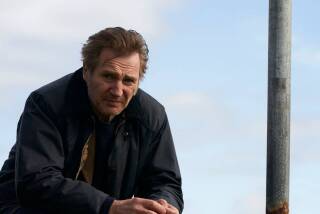Excursions into Coen ‘Country’
- Share via
I enjoyed Reed Johnson’s piece on “No Country for Old Men” [“A Filmmaking Breakthrough for the Coens,” March 2]. I too found fascinating undertones that apply to much more than the story itself.
One that I found particularly pertinent to our culture was the idea expressed by Javier Bardem’s character to Kelly Macdonald’s character just before he kills her. The heads-or-tails quarter itself has come from the same place and is just as important (or unimportant) as anyone’s life that its flip decided. Each has essentially the same value.
This seems to me to be the underlying message of today’s drum-beating atheists, materialists and deniers of any “intelligent design.” Humans are really no more valuable or important than rocks, trees or “lower” animals -- perhaps having just a more complex organization of their matter (thanks to lucky stars or chaos and eons of time).
This godless worldview leads to a “country” that the “old men” of former mores find sad, hopeless and disheartening, well expressed by Tommy Lee Jones’ sheriff.
Cline Handy
Encinitas
--
I really liked Reed Johnson’s article on the Coen brothers except for one misreading concerning the Yeats poem “Sailing to Byzantium.” The “country for old men” in the first stanza applies to Ireland or our quotidian world, where all is focused on the young and the old (monuments as well as people) are disrespected.
In his imagined goal of Byzantium, where he will sing of all times past, present, and future, the old man (the poet) will be purged by fire of the tatters of old age and become immortal. Frozen outside time, Byzantium apparently knows no distinctions of age, and he will be an artifice like a golden bird and prophesy in more than one sense of the word.
Dave Samuelson
Burbank
